First Nations chiefs criticize feds for failing to consult on Indigenous body tied to Major Projects Office
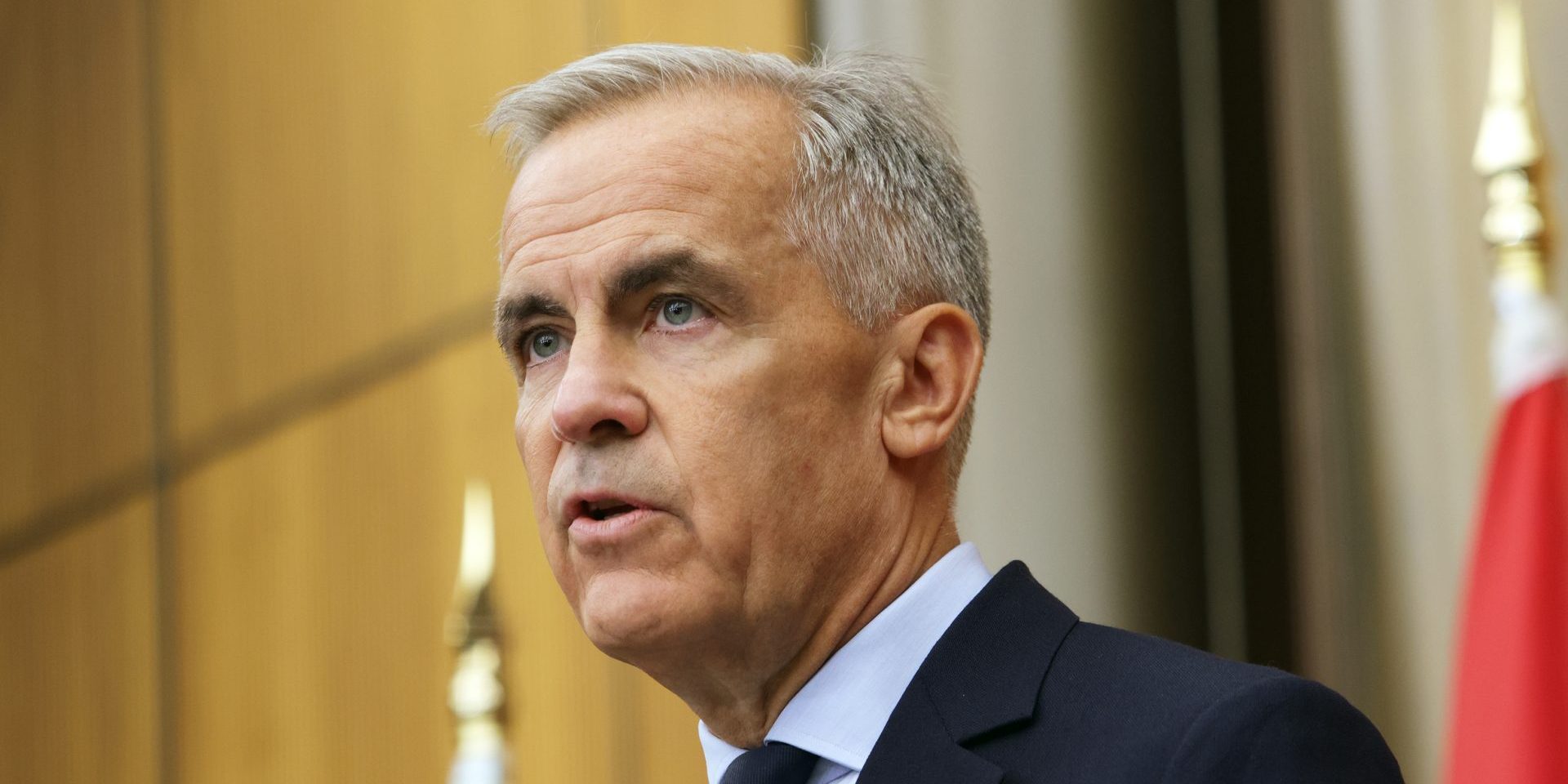
Indigenous leaders from across Canada have been hand-picked to form the Indigenous advisory body in the prime minister’s freshly-launched Major Project Office, but some chiefs are raising concerns around the lack of transparency and participation in the selection process.
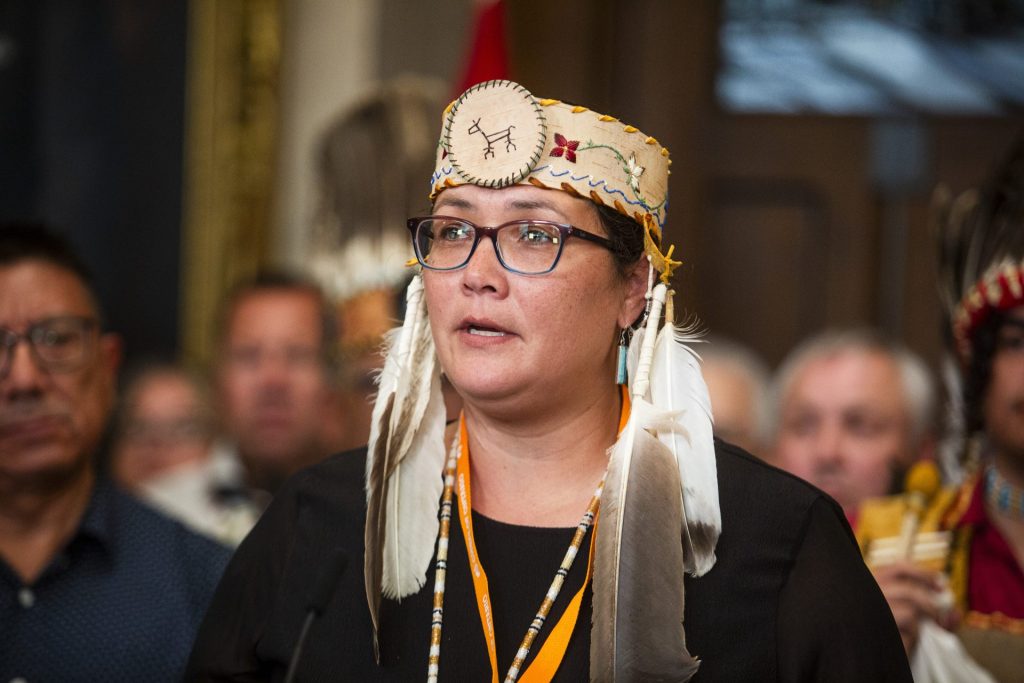
“There’s been little or no information with respect to the process of the establishment of the Indigenous Advisory Council,” said Anishinabek Nation Grand Council Chief Linda Debassige, adding that chiefs of the 39 Anishinabek nations heard “nothing” from the government about how the 11-person body was formed.
Chiefs of Ontario’s Abram Benedict said his group, representing 133 First Nations, was also not consulted on membership.
“We were never approached as the Chiefs of Ontario to put forward any names of individuals who would be ideal to represent our region,” said the Ontario regional chief.
Prime Minister Mark Carney (Nepean, Ont.) announced his picks on Sept. 10, and the next day unveiled the first five national-interest projects the office will be overseeing.
Seven of the council’s members are from First Nations: former Assembly of First Nations’ Yukon regional Chief Kluane Adamek; Saskatchewan’s Whitecap Dakota First Nation Chief Darcy Bear; Listuguj Mi’gmaq First Nation entrepreneur and National Indigenous Economic Development Board Vice Chair Victoria LaBillois; JP Gladu, founder and principal of the Indigenous consulting firm Mokwateh; Alberta’s Treaty 8 First Nations Grand Chief Trevor Mercredi; Terry Paul, chief and CEO of Membertou First Nation located in Nova Scotia; and Crystal Smith, a former chief councillor for British Columbia’s Haisla Nation Council and Chair of the First Nations LNG Alliance, an Indigenous collective supporting responsible LNG development in the province.
The council also seats two Métis representatives: Lorne Pelletier, senior economic adviser for the Manitoba Métis Federation and co-chair of Canada’s Co-development Table on Transformative Indigenous Procurement Strategy; and COO of Saskatchewan’s Métis Nation Matt Vermette, who is also a board member of the Saskatchewan Indigenous Investment Fund Corporation.
The remaining two members are Inuit: Nunavut Tunngavik Inc.’s infrastructure analyst Christy Sinclair; and Vanessa Doig, the assistant director of the president’s department for the Inuit treaty organization Makivvik, which represents Nunavik, Que.
But Métis Nation of Ontario (MNO) President Margaret Froh, speaking to The Hill Times prior to the membership announcement, explained that some Métis governments were involved in the selection process. She said the MNO submitted names for the council, and the other Métis governments who attended the prime minister’s Métis Major Projects Summit, held in Ottawa on Aug. 7, were invited to submit names, as well.
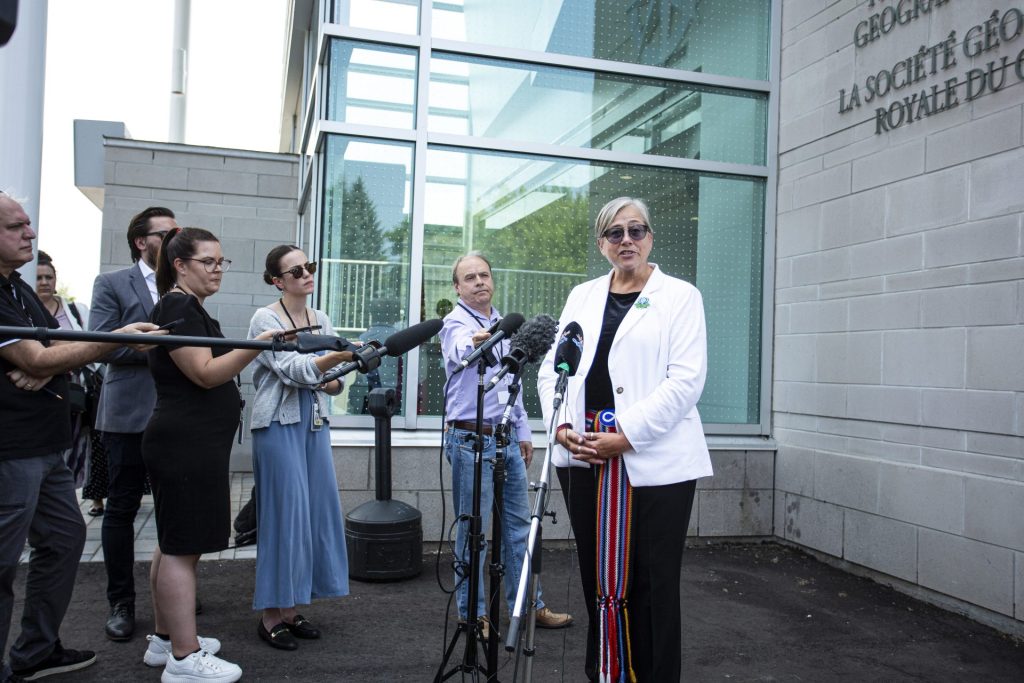
She said she was “heartened” by what she heard from Carney and his cabinet at the summit.
Debassige, speaking to The Hill Times on Sept. 10 before the membership news, stressed the need for transparency in the government’s selection process.
“There should be a due process into the establishment of this advisory council, and not shopping around for individuals to sit on this,” she said.
She added that the council risks “closing the barn doors after the horses have fled,” pointing to the fast-tracking of Bill C-5 through Parliament, which has drawn criticism from Indigenous leadership concerned it could be used to force projects onto communities.
“Our communities, our nations, are of the opinion that the advisory council are not the rights holders to the land that will be impacted by proposed project development,” she emphasized, also stressing that it’s unclear what the body’s role will be.
MPO, C-5 ‘a bit of a secret process,’ says Chief Benedict
The Privy Council Office (PCO) told The Hill Times the body would provide “expert advice and recommendations,” and that the One Canadian Economy Act—through which the Major Projects Office (MPO) was created—is “about working in true partnership” with Indigenous people.
When asked about the selection process and whether the government either involved or informed Indigenous groups, the PCO said members were “selected for their expertise in areas such as major projects, economic development, Indigenous rights, and regulatory processes.” The office also said the members ensure “broad regional representation.”
Members of the Indigenous Advisory Council (IAC) have been appointed for an initial two-year term, says a release from the Prime Minister’s Office, and they will meet a minimum of four times a year in person, holding other virtual meetings “as required.”
Benedict said that though Gladu—the IAC’s First Nations Ontario representative—is a “good candidate” for the post, he received no indication about what the process was for consideration.
Benedict said though he understands “government processes,” it would have been “good” if leadership had been consulted in the process.
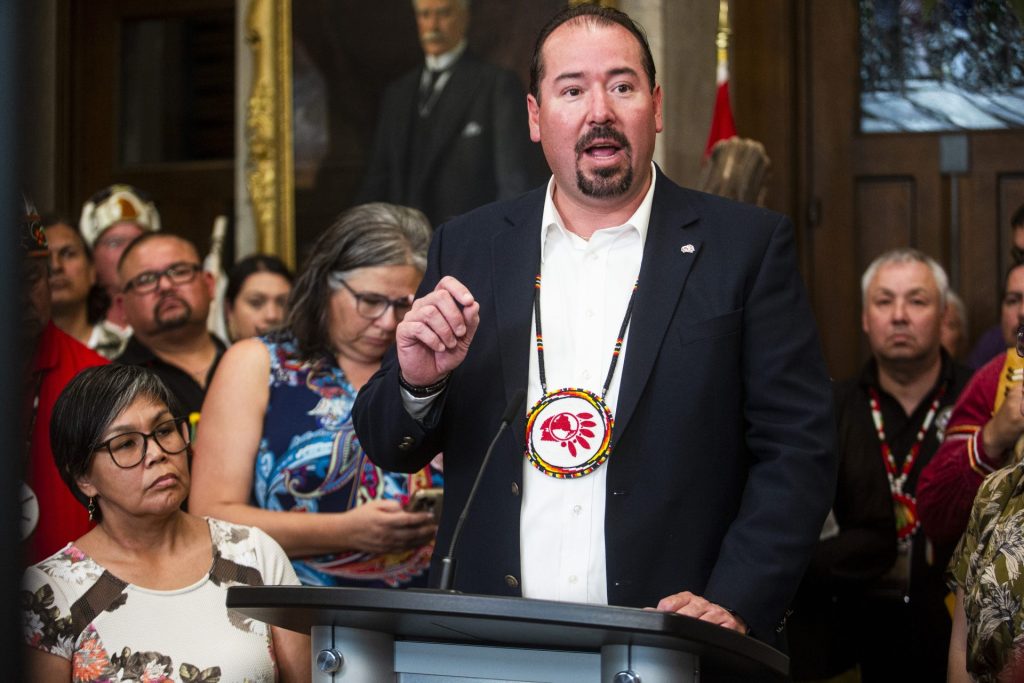
“They should have relied upon some of the regional offices, or regional First Nations organizations, to provide some insight … perhaps a short list, which they didn’t do,” he said.
He added that the implementation of the MPO and Bill C-5 has been “a bit of a secret process,” which has been a “challenge” as there hasn’t been proper consultation.
“It really does feel like that same thing is happening now” with the MPO, he said. “We’re trying to be optimistic. … We want the government to continue to support development with First Nations partners.”
The IAC has already come under fire by some groups for not being representative.
“Canada is once again moving forward without respecting the voices, jurisdiction, and decision-making authority of First Nations in Manitoba,” Assembly of Manitoba Chiefs Grand Chief Kyra Wilson said in a Sept. 10 statement. “Not one First Nations leader was even considered. This is not inclusion—it is exclusion.”
“First Nations in Manitoba will determine their own place in these processes. First Nations leadership, and their respective nations, will decide on how they will engage in these major projects and give direction,” the statement also read.
The Otipemisiwak Métis Government was quick to criticize the lack of an Alberta Métis member, too.
“If the Métis Nation within Alberta does not have a seat at the table, it would undermine reconciliation and weaken the very nation-building these projects are meant to achieve,” Andrea Sandmaier, president of the Otipemisiwak Métis Government, said in a Sept. 10 statement, noting the government represents the largest Indigenous population in Canada.
How the body will function is the key question, says strategist Cullen
Olivier Cullen, former chief of staff for then-Indigenous Services minister Patty Hajdu (Thunder Bay—Superior North, Ont.), called the IAC a “great mix” representing the “top people in their fields across the country.”
“They’re people who dedicated their lives to bettering not only their communities, but [also] First Nations and Indigenous people in general,” he said, adding they are people “who understand how true economic reconciliation works.”
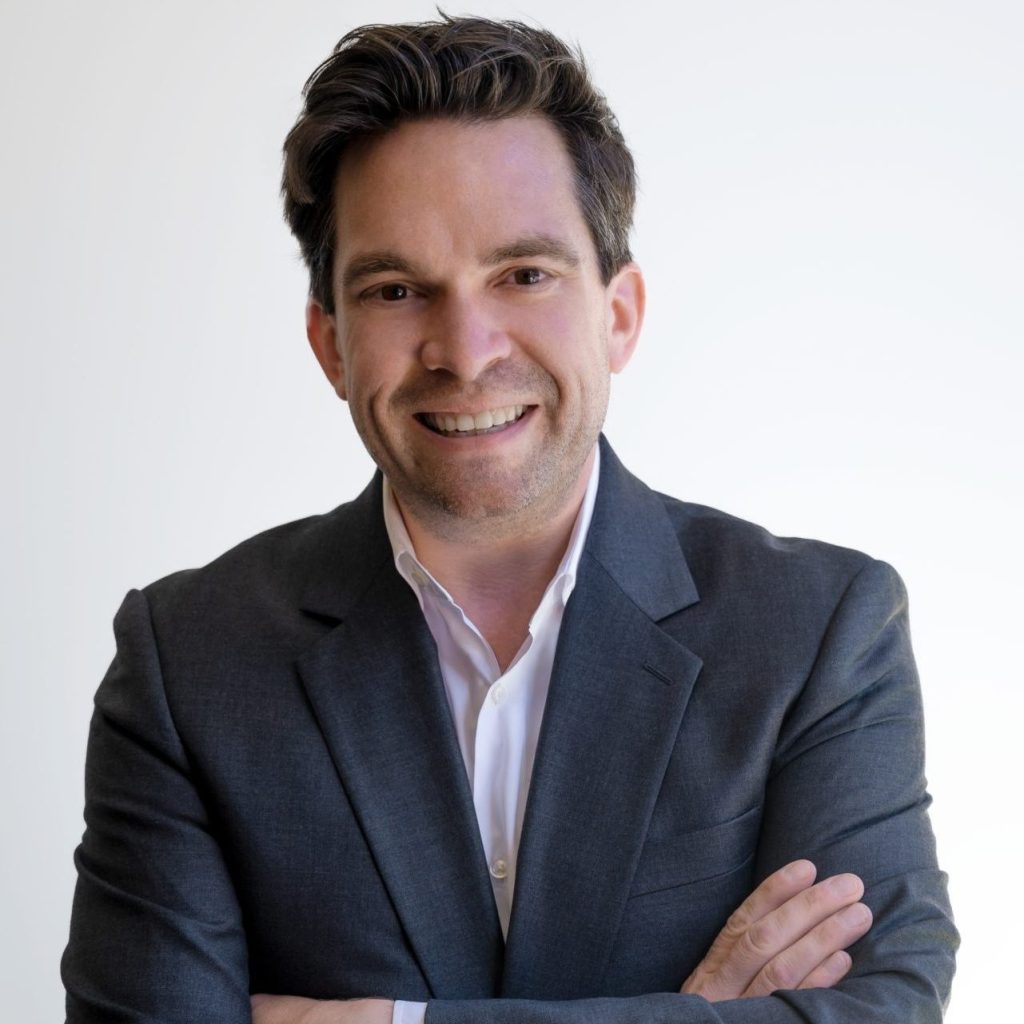
He said what remains to be seen is how the body will function within the MPO.
“They’re going to meet four times a year minimum,” noted Cullen, who’s the director of strategy at Blackbird Strategies, “that doesn’t necessarily really seem like a lot to me. … What I’m still slightly concerned about is how the federal Major Projects Office is going to interact with this group.”
“You can take the smartest people from across the country—which is what this group is—but if the federal Major Projects Office is still going to go their own route, I think that’s still a bit of a concern.”
He said he is “cautiously optimistic,” but said the test going forward will be communication and transparency.
“Are they going to be amenable to criticism and complaints? And how are they going to handle those criticisms?” he said.
“After the tabling of C-5, a lot of those voices were not listened to, pretty much shut out of any kind of debate,” Cullen said, “so, I hope they are flexible and open and willing to listen and act on those requests of better consultation—of actual consultation.”
Benedict, too, expressed hope, pointing to previous projects that have been “developed very well with First Nations participation.”
“Time will tell,” he said of the office’s future, “but we’re being optimistic that it’s going to be positive.”
Debassige offered a bleaker assessment.
“I think the Indigenous Advisory Council is an entity that’s going to be set up for failure, and quite honestly, probably used as a scapegoat for any failures that Canada experiences,” she said.
“Again, decisions are being made without our nation’s involvement, and they’ll come to our nations at the last minute, like they’ve always done.”
She pointed to the Liberals’ 2024 economic statement, for which the federal government attributed the deficit overrun to Indigenous legal claims against the Crown, saying that in doing so, the government perpetuated “hate towards First Nations people.”
“Their idea of compensation is, you know, do what they need to do now … get their hands slapped later and pay out compensation. But that’s not the way First Nations want to do business.”
ewand@hilltimes.com
The Hill Times






 LICENSING
LICENSING PODCAST
PODCAST ALERTS
ALERTS













